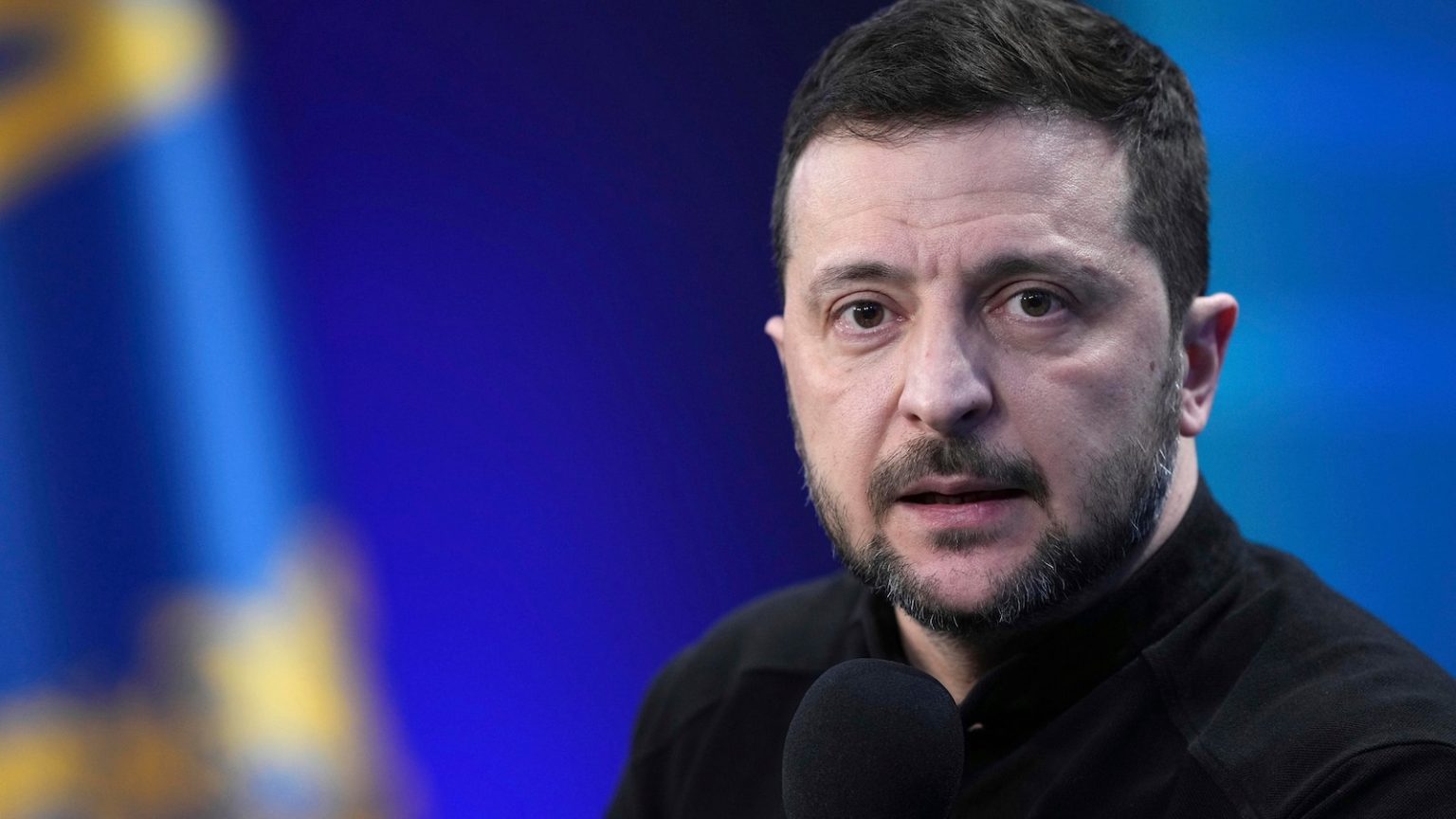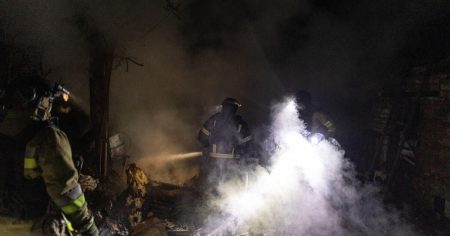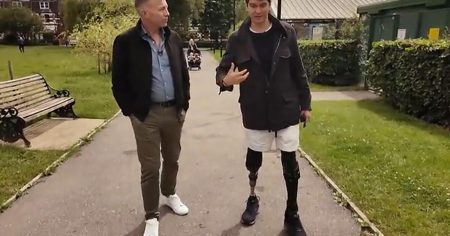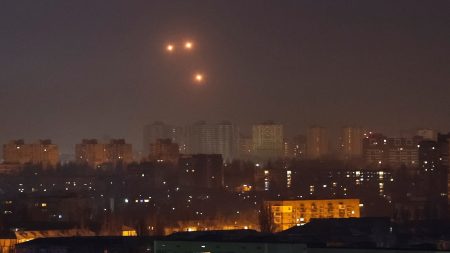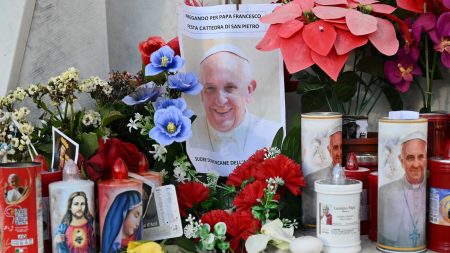Zelenskyy’s Historic Offer: Peace and NATO Membership Over Personal Power
In a deeply personal and politically charged press conference held in Kyiv on February 23, 2025, Ukrainian President Volodymyr Zelenskyy made a profound statement that resonated across the globe. When asked by ABC News Chief Foreign Correspondent Ian Pannell whether he would be willing to step down as president if it could bring peace to Ukraine, Zelenskyy responded unequivocally. “If for peace for Ukraine, it’s truly necessary for you that I leave my post, I am ready,” he said. This remarks underscored his unwavering commitment to his country’s survival and security. Zelenskyy further emphasized that Ukraine’s future lies in NATO membership, stating that he would not hesitate to exchange his presidency for a guarantee of Ukraine’s integration into the alliance. “We can exchange it for NATO membership. If those are the terms, then let’s do it without delay,” he declared.
Zelenskyy’s comments were made just one day before the third anniversary of Russia’s full-scale invasion of Ukraine, a conflict that has devastated the nation, displaced millions, and drawn the world into a precarious geopolitical standoff. The Ukrainian leader’s willingness to sacrifice his own political future for the sake of peace and security reflects the gravity of the situation and his determination to prioritize Ukraine’s needs above his own. Zelenskyy also made it clear that he is not interested in prolonging his time in power, stating, “I have no intention of staying in power for a decade. This is my focus and my greatest aspiration.”
Trump’s Attacks and the Pressure on Zelenskyy
Zelenskyy’s remarks came amid escalating tensions with former U.S. President Donald Trump, who has recently escalated his rhetorical attacks on the Ukrainian leader. Trump, who has sought to shift the narrative of the war in Ukraine, accused Zelenskyy of being a “dictator without elections” and painted him as an obstacle to ending the conflict. Following U.S.-Russia talks in Saudi Arabia last week—a meeting that notably excluded Ukrainian representation—Trump warned Zelenskyy to “move fast or he’s not going to have a country left.”
These comments marked a significant deterioration in the already strained relationship between Trump and Zelenskyy. Trump has falsely blamed Ukraine for the war, despite the incontrovertible fact that Russia launched the invasion in February 2022. His recent statements have also reflected an effort to rehabilitate U.S.-Russia relations, a move that has raised alarms in Kyiv and among Ukraine’s allies. The Trump administration has also applied direct pressure on Zelenskyy, demanding that he sign a controversial deal that would require Ukraine to pay the United States $500 billion through a fund financed by seizing 50% of Ukraine’s natural resource revenues, including minerals, oil, and gas, as well as ports and other infrastructure.
Zelenskyy has categorically refused to sign the agreement, citing a lack of guarantees and arguing that the $500 billion figure is five times the estimated $119 billion in aid the U.S. has provided to Ukraine since 2022, according to the Kiel Institute for the World Economy. “I just want a dialogue with President Trump. I think that’s fair. I’m not signing off on something that future Ukrainian generations will have to pay back for the next 10 generations,” Zelenskyy said during the press conference. He also criticized the terms of the deal, noting that Ukraine would effectively pay back $2 for every dollar it receives—a financially crippling arrangement for a country already devastated by war.
A Fragile Dialogue and the Search for Security Guarantees
Despite the tension, Zelenskyy expressed optimism about ongoing negotiations with the Trump administration, revealing that his chief of staff, Andriy Yermak, was engaged in talks with National Security Adviser Mike Waltz. He noted that the $500 billion figure was no longer on the table, suggesting that some progress had been made. “We’re making progress,” he said. However, Zelenskyy remained firm in his refusal to accept a deal that would saddle future generations with debt, emphasizing that the aid provided by the U.S. was approved by Congress as a grant, not a loan.
Zelenskyy also reiterated his belief that NATO membership remains the most “cost-effective” solution for Ukraine’s long-term security. He stressed that any peace deal must include robust security guarantees to ensure Ukraine’s survival and stability. “Peace through strength means focusing that strength against Russia,” he said, calling on Trump to stand firmly with Ukraine rather than pursuing what he described as insufficient mediation. Zelenskyy acknowledged the bipartisan support for Ukraine in the U.S. Congress, expressing gratitude for the backing his country has received from American lawmakers.
However, Zelenskyy’s comments also betrayed a sense of urgency and skepticism. He pointed out that Trump’s tenure in power is temporary, saying, “He is not forever, and we need peace for many, many years.” This statement highlighted the need for a durable solution that transcends the current U.S. administration, one that would ensure Ukraine’s security in the decades to come.
The Broader Context: A War for Sovereignty and Accountability
Zelenskyy’s remarks must be understood within the larger context of the war in Ukraine, a conflict that has tested the resilience of the Ukrainian people and the resolve of the international community. Russia’s invasion in February 2022 marked the beginning of a brutal and unrelenting campaign to destabilize Ukraine and undermine its sovereignty. The war has caused immeasurable suffering, with thousands of civilians killed, millions displaced, and critical infrastructure destroyed.
Against this backdrop, Zelenskyy’s willingness to sacrifice his own political future for peace takes on even greater significance. His offer to step down or exchange his presidency for NATO membership is not merely a diplomatic gesture; it is a testament to the depth of his commitment to Ukraine’s survival and his determination to secure its future. At the same time, his refusal to submit to Trump’s demands reflects his unwavering stance on Ukrainian sovereignty and his rejection of any deal that would compromise Ukraine’s ability to rebuild and recover.
Conclusion: The Path Forward and the Role of the International Community
As the conflict in Ukraine enters its fourth year, the path forward remains fraught with uncertainty. Zelenskyy’s press conference underscored the critical role that leadership and diplomacy will play in shaping the future of Ukraine and the broader geopolitical landscape. While his offer to step down for peace or NATO membership reflects his personal sacrifice and political courage, it also serves as a stark reminder of the high stakes involved in this conflict.
The international community, particularly the United States and its allies, has a crucial role to play in supporting Ukraine as it navigates this perilous terrain. Zelenskyy’s call for security guarantees and his emphasis on the need for a durable peace highlight the importance of maintaining a united front against Russian aggression and ensuring that Ukraine’s sovereignty is not only preserved but strengthened. As the world watches, the question remains: Will the international community rise to the challenge and support Ukraine in its fight for freedom and security, or will the forces of authoritarianism and aggression prevail? The answer will shape the course of history for generations to come.





